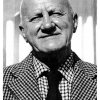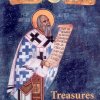Miroslav – he enjoyed the informality of American life and was happy to be called by his first name, or even by the nickname Miro – studied Classics at the University of Belgrade, earning a bachelor's degree in 1942, an especially difficult time. In the following year he was appointed Assistant for Byzantine Studies to the great Byzantinist Georg Ostrogorsky. But he was required to spend the rest of the war years serving as a translator in the army headquarters of Marshal Tito, of which service he later professed to be not particularly proud. After the war he returned to the University of Belgrade, where he held the post of Lecturer in Classics from 1946 until 1954. During that time he explored the monasteries and archives of Dalmatia, looking for Greek and Latin manuscripts. Among the fruits of that research were a monograph, Die byzantinischen Urkunden im Staatsarchiv Ragus, and critical editions of the Latin poems of two Croatian humanists, Marko Marulic (1450-1524), who appears to have been the man who coined the term 'psychology', and Franjo Bozicevic (Francisco Natalis), a younger contemporary of Marulic. Full bibliographical details for these and many of the other publications to be mentioned below can be found in ICS 18, 1993, 1-17 and 19, 1994, 1.
In 1954 Miroslav went to India, where he was a Visiting Scholar at Visvabharati University, in Santiniketan, the school founded by Rabindranath Tagore and whose Chancellor at the time was Jawaharlal Nehru. There he translated the Bhagavad-Gïtâ into Spanish and into Serbo-Croatian. Not being an enthusiastic supporter of the Communist government in Yugoslavia, he preferred not to return to his homeland and in 1955 he accepted the position of Professor of Classics and Philosophy at the Universidad de Los Andes in Mérida, Venezuela. The terms of employment were very attractive, providing a handsome salary and the opportunity to spend the Michaelmas term each year in Cambridge, where Miroslav enjoyed the availability of splendid libraries and easy access to the great collections of Greek manuscripts. During this period, which lasted until 1969, Miroslav wrote the RE article on Heraclitus, later issued separately as a monograph, and completed his editio maior of Heraclitus, which has since been published in a revised Italian translation, issued in an editio minor and, most recently, reprinted with fresh addenda, corrigenda and a select bibliography for 1967-2000 in the series International Pre-Platonic Studies (Sankt Augustin 2001). In 1962-63, at the invitation of Hans Heiter, Miroslav was Visiting Scholar at the University of Bonn, where he began work on his major edition of Hippolytus' Refutatio omnium haeresium. This edition was completed in Cambridge, but was not published until 1986, after Miroslav had moved to the University of Illinois.
This move took place in 1969, when Alexander Turyn retired and Miroslav was invited to come to Illinois as his successor. His appointment as Professor was supported by enthusiastic letters from Henry Chadwick, Harold Cherniss, W. K. C. Guthrie, Hans Herter, Geoffrey Kirk, Hugh Lloyd-Jones, Rodolfo Mondolfo, F. H. Sandbach, Friedrich Solmsen, Gregory Vlastos and Leonard Woodbury. His teaching career at Illinois lasted for twenty years, until his retirement in 1989. During that time he served as Head of the Department of the Classics for the years 1973-1977- His energetic leadership as Head brought about an increase in the size of the Department and stunning improvements in enrollments in Classics courses, such that the Department became the object of suspicious envy on the part of other departments in the College. While he was Head he founded the journal Illinois Classical Studies, of which he served as editor from 1976 until 1982 and again from 1988 until 1992, himself typing on an IBM Selectric the entire text of volumes 5-7 to produce the camera-ready copy! He was a member of the Advisory Committee for the Thesaurus Linguae Graecae from 1973 until 1980 and he was invited to serve as Visiting Professor at other institutions on a number of occasions, including the University of North Carolina (as Paddison Visiting Professor, 1975), the University of Michigan (1979-80), Tel Aviv University (as Sackler Fellow, 1991) and Trinity College, Dublin (1984). In this last position he liked to refer to himself as c Visiting Regius Professor1, as he was visiting Trinity in exchange for Regius Professor John Dillon, who was himself visiting at Illinois. He received a number of awards and honors, culminating in the conferrai of an Honorary Degree of Doctor of Humane Letters by the University of Illinois in 1994. These honors included the Silver Cross (Mt. Athos, 1963), a Guggenheim Fellowship (1983), a National Endowment for the Humanities Fellowship (1990) and an appointment as Albert Einstein Visiting Fellow by the Israel Academy of Sciences (1989-90). In 1993 and 1994 his friends and colleagues devoted two volumes of ICS, 'his' journal, to a Festschrift in his honor, consisting of fifty-five contributions by distinguished scholars from over a dozen countries.
Before his retirement Miroslav published a remarkable number of articles and books, including Three- Word Trimeter in Greek Tragedy (1984), Studies in Graeco-Roman Religions and Gnosticism (1988), Studies in Greek Poetry (1991) and editions of Hippolytus' Refutatio (1986), the Alcestis Barcinonensis (1988), Prosper of Aquitaine's De providentia Dei (1989), Athenagoras' Legatio pro Christianis (1990) and Pseudo-Justin's Cohortatio ad Graecos, De monarchia and Oratio ad Graecos (1990). But this was only a prelude to the astonishing burst of activity that ensued in the decade following his retirement from teaching, when he completed critical editions of a number of Greek authors. In most cases he had collated the manuscripts of these authors during his years in Europe. He was a tireless and accurate palaeographer who prided himself on his ability to read any hand with relative ease. Everyone knew that he was preparing a desperately needed new edition of the text of Diogenes Laertius and I was frequently asked by scholars whom I met at learned gatherings - Miroslav rarely took time away from his rigorous research schedule to attend professional meetings himself - when his edition would appear. (The last letter Miroslav received from his friend Edouard des Places, before the latter died in his hundredth year, included the urgent plea, «J'attend Diogène!».) Miroslav had long since collated the manuscripts of D. L. and of the ‘Magnum Excerptum’, the codex unicus of which he was the first to edit. For reasons that were never clear he kept postponing his work on that edition, turning his attention instead to publishing in quick succession editions of Theodorus Prodromus’ De Rhodanthes et Dosiclis (Teubner 1992), Justin Martyr's Apologiae pro Christianis (1994), Tatian's Oratio ad Graecos (1995), Theophilus of Antioch's Ad Autolycum (1995), Clement of Alexandria's Protrepticus (1995) and Justin Martyr's Dialogus cum Tryphone (1997) as well as his Patristic Textual Criticism, vol. 1 (1994), consisting of discussions of and solutions to scores of paradigmatic textual problems in the Church Fathers whose works he had edited.
It was only after his doctors told him (in 1997) that he had six months to live that he decided it was time to turn his attention seriously to completing the long-awaited Diogenes Laertius. He had made arrangements with me regarding what needed to be done in the event that he did not live to complete his work. Fortunately for me (and for the scholarly world in general) Miroslav was able to see his Diogenes Laertius through to completion. It was published by Teubner at the end of 1999 in two volumes comprising more than 1200 pages. A third volume, containing the indexes, has been completed and will appear shortly. But Miroslav was not finished. Indeed, it seemed that he would never be finished. In 2000 appeared his edition of Athenagoras' De resurrectione mortuorum (Vigiliae Christianae Suppl. 53) and in 2001 his Teubner text (now published by Saur Verlag) of Eustathius Macrembolites’ De Hysmines et Hysminiae amoribus was published. And, before his death he had completed editions of Clement of Alexandria's Paedagogus and of the eight books of Origen’s Contra Celsum, both of which are expected to be published with- out too much delay, and he had made arrangements for the publication of a revised edition of his text of the Davidias of Marko Marulic.
Miroslav regarded the biographical approach to the history of scholarship with a mixture of amusement and contempt and he would not have approved the inclusion at this point of the personal vignette customarily appended to enliven notices like this. Those who were acquainted with Miroslav know what he was like; those who were not cannot hope to know. He would, however, have expected an appraisal of his work. As I am not qualified to provide such an appraisal, I will leave it to those who are so qualified. Instead, I will close by noting that Miroslav himself, whose judgement in these matters was unusually sound, considered his edition of Athenagoras' Legatio pro Christianis to be his finest work. He felt a special kinship with the devout Christian apologist who was fully conversant with the works of the Greek philosophers. His own mastery of those works of philosophy and his astonishing memory enabled him to engage in what one reviewer referred to as Quellenforschung of unprecedented thoroughness' and his meticulous palaeographical skills produced the most accurate account of the evidence available for Athenagoras' text that we are ever likely to possess.
David Sansone
Source: Gnomon, 73. Bd., H. 8 (2001), pp. 746-748
Мирослав Марковић је рођен у Београду, 18. марта 1919. године. Његов отац, Светозар, био је трговац, а мајка, Обренија, књижевник. Марковић је завршио чувену Другу мушку гимназију 1937, а класичну филологију је дипломирао на Филозофском факултету Београдског универзитета 1942. године. За време окупације био је на принудном раду у неколико јавних предузећа, да би 1. септембра 1943. године, почео да ради на Филозофском факултету „реорганизованог“ Београдског универзитета. Академску каријеру је започео као асистент знаменитог византолога Георгија А. Острогорског, на Катедри за балканистику (предмет: Балкански народи и Византија). Од стране партизана је био мобилисан 31. децембра 1944, и радио је прво у Пропагандном одељењу Врховног штаба као преводилац, а затим је пребачен у Генералштаб, тачније, у Војно-издавачки завод МНО где је радио као редактор; демобилисан је 1. августа 1945. и упућен на рад у издавачкој кући „Култура“, где је такође радио као преводилац и редактор. Коначно, 31. децембра 1946. враћен је на београдски Филозофски факултет. Овог пута је био запослен као „асистент приправник“ при Катедри класичне филологије, а за предмет Грчки језик и књижевност. Старгогрчки је предавао и студентима на Одељењу за филозофију, и у свом раду је тежио томе да философско образовање утемељи на самим изворима. Стога, Марковић приређује и једну значајну хрестоматију грчких философских текстова (Florilegium Philosophum Graecum [1951]); функција ове хрестоматије била је двојака: (1) приступачност грчких философских текстова и (2) лакше савладавање старогрчког језика.
У првом периоду своје веома плодне каријере, одмах након Другог светског рата па све до средине педесетих година када напушта Југославију, активно пише, преводи и приређује. Са старогрчког и латинског преводи списе Хераклита, Аристотела, Хорација; приређује Давидијаде Марка Марулића, песме Фране Божичевића Наталиса, византијске повеље из Дубровачког архива; од тумача старине преводи, пре свега, дела совјетских аутора Александрова, Машкина, Тронског, Авдијева, Удаљцова и др; такође, део његове преводилачке продукције били су и текстови Енгелса, Плеханова, Розентала, као и Доброљубова, Бјелинског и др.
На основу регистра аутора и дела које је преводио у другој половини четрдесетих и првој половини педесетих година, могло би се закључити да је Марковић био промарксистички оријентисан, прецизније, да је био дијаматовац. Међутим, ако се зна да је у тим годинама нова власт радила на устројавању академског живота који би био у складу с новом званичном идеологијом, и да један универзитетски наставник и сарадник државних института није имао пуну слободу у одабиру литературе коју ће преводити и користити у настави, онда је јасно да се такав закључак – да је Марковић био дијаматовац – не може одмах извести. Напротив, судећи по преписци која нам је доступна и сведочанству људи са којима је комуницирао, јасно је да он никада није заступао ондашња официјална иделошка уверења. Марковић је био преокупиран својим научним радом, те се ни тих година, а ни и касније није политички ангажовао.
На Београдском универзитету је радио до 1. јула 1954. године, када, на наговор проф. Милоша Ђурића, одлази у Индију као гостујући истраживач на Универзитету Visva-Baharati. Најважнији резултат тог боравка је, свакако, превођење Bhagavadgītā-е; његов шпански превод се појавио 1958, а српски (1981). Након једногодишњег боравка у Индији одлази у Венецуелу, и тамо од 1955. до 1962. године ради на престижном Универзитету „Лос Андес“ (Мерида). Из Немачке 1962. добија позив Ханса Хертера, који прихвата и прелази на Универзитет у Бону, а након тога одлази у Кембриџ, где је био активан у периоду од 1963. до 1968. године. Чувени хелениста, палеограф и кодиколог, Александар Турин, одлази у пензију 1969. године, и уместо њега, на препоруку Чедвикa, Гатрија и других значајних научника тога доба, Марковић почиње да предаје на Катедри за класичне науке на Универзитету Илиноис (Урбана, САД), а од 1973. до 1977. је био и шеф исте. Основао је часопис Illinois Classical Studies (1976–), који је уређивао од 1976. до 1982. и од 1988. до 1992, а који је убрзо по оснивању постао један од угледнијих у области класичних студија. На Универзитету у Илиноису остаје до пензионисања 1989, а исти Универзитет му 1994. године додељује и почасни докторат. У том периоду је такође био и гостујући професор на универзитетима у Мичигену (University of Michigan) и Северној Каролини (University of North Carolina), Тринити колеџу у Даблину (Trinity College) и др.
Марковић је гостовао и на многим светским универзитетима (поред управо поменутих, предавао је и у Грчкој, Израелу, Канади итд); предавања је најачешће држао на језику домаћина. Говорио је немачки, енглески, француски, руски, шпански, италијанским, бугарски, новогрчки, а од древних језика готово савршено је познавао старогрчки, латински и санскрит. А такође је важио и за једног од водећих стручњака за „ишчитавање“ грчких и латинских рукописа. Поред палеографије, био је непрекисновни познавалац античке филологије, историје, археографије, текстологије, фолклористике, философије, религиологије итд. Његово издање Хераклитових фрагмената (досада се појавило неколико издања на више светских језика) деценијама се сматра најрелевантнијим, а исти статус имају и његава издања списâ Диогена Лаертија, Јустина Философа, Атинагорe, Теофила Антиохијског, Татијана, Климента Александријског, Оригена, Иполита Римског и др. Активно је и писао, публиковао је око 250 стручних радова; био је мајстор кратких форми – бавио се искључиво суштински важним стварима, а све оно сувишно је елиминисао, избегавајући непотребну преопширност. Наравно, објављивао је и монографске студије већег обима, и оне су увек биле рађене у складу са највишим научним стандардима.
Мирослав Марковић се упокојио 14. јуна 2001. године, у Илиноису, а заупокојена литургија служена је 24. јуна у тамошњој цркви Света Три Јерарха.





